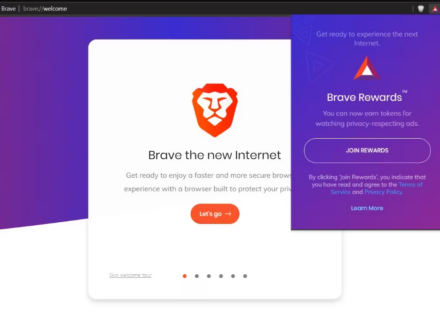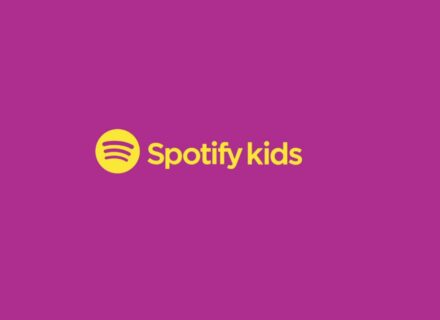Machine learning (ML) has become a catalyst for change across multiple industries worldwide, and the catering industry in India is no exception. As technology advances, businesses in the catering sector are leveraging machine learning algorithms to streamline their operations, enhance customer experiences, and optimize their offerings. In this article, we will explore how machine learning is transforming the catering industry in India, highlighting its impact on various aspects such as customer service, operational efficiency, menu optimization, food safety, and marketing strategies.
1. The Role of Machine Learning in Enhancing Customer Experiences
The catering industry, especially in a dynamic and diverse market like India, is deeply customer-centric. One of the most significant advantages of integrating machine learning into catering services is the ability to create personalized customer experiences.
Recommendation Systems
Recommendation systems, powered by machine learning, play a crucial role in suggesting food items based on a customer’s preferences, past orders, and even dietary restrictions. In the context of online catering services, platforms such as Zomato and Swiggy use ML algorithms to suggest personalized menus, increasing the likelihood of customers finding exactly what they desire. These platforms analyze customer data, such as previous order history, preferred cuisines, order frequency, and even time of day, to create tailored recommendations.
For example, if a customer frequently orders vegetarian food or prefers spicy dishes, the algorithm will suggest options that align with those preferences. This not only enhances customer satisfaction but also fosters loyalty, as users are more likely to return to a service that consistently meets their needs.
Dynamic Pricing
Machine learning also allows catering businesses to implement dynamic pricing models, adjusting prices based on factors such as demand, seasonality, or special events. This approach ensures that prices are competitive and optimized for both the customer and the business. For instance, during peak wedding seasons or festival periods, demand for catering services spikes. ML algorithms can predict these shifts in demand and adjust prices accordingly, ensuring profitability without losing out on potential customers.
2. Operational Efficiency and Cost Reduction
In a highly competitive market like India, operational efficiency is a critical factor that determines the success of a catering business. Machine learning is playing a key role in helping businesses reduce costs and improve their overall operational performance.
Inventory Management
Inventory management is a critical challenge for catering businesses, especially when it comes to managing perishable ingredients. Over-ordering leads to food waste, while under-ordering can result in running out of stock and disappointing customers. ML algorithms, when integrated with inventory management systems, can predict ingredient demand based on historical usage data, seasonal trends, and upcoming events. This ensures that catering businesses order the right amount of ingredients, minimizing waste and reducing costs.
For example, if a catering company is preparing for a large event like a wedding, ML can predict the quantity of ingredients required based on the number of attendees, the type of menu, and previous events of similar size and nature. This prediction helps the business maintain an optimal inventory, reducing the chances of spoilage and waste.
Supply Chain Optimization
Machine learning also plays a pivotal role in optimizing the supply chain, particularly in delivery management. Catering businesses can use ML to predict delivery times, optimize routes, and ensure timely deliveries. Algorithms can analyze real-time traffic data, historical delivery performance, and customer locations to provide the most efficient delivery routes, reducing fuel costs and delivery times.
For example, cloud kitchen platforms that cater to customers in different regions can use ML to dynamically allocate delivery drivers and choose the fastest routes. As a result, customers receive their orders on time, and businesses can operate more efficiently.
Automating Repetitive Tasks
Repetitive tasks such as order processing, customer queries, and inventory checks can be automated using machine learning algorithms. Chatbots powered by ML models can answer common customer questions, take orders, and even provide recommendations. This automation not only saves time but also reduces the burden on staff, allowing them to focus on more complex tasks.
For example, an AI-powered chatbot on a catering website can help customers place orders, suggest menu items, and answer questions about the availability of specific dishes. This reduces the need for human intervention and speeds up the overall customer service process.
3. Menu Optimization and Trend Analysis
In a diverse market like India, customer tastes and preferences vary widely across regions. Catering businesses need to stay ahead of food trends and continually refine their menus to meet evolving customer demands. Machine learning is revolutionizing the way menus are designed and optimized.
Data-Driven Menu Design
Machine learning algorithms can analyze customer feedback, sales data, and social media trends to provide insights into what types of food are popular and in demand. Catering businesses can use this data to design menus that reflect current food trends and cater to specific customer preferences. This data-driven approach ensures that businesses are offering items that their target audience desires, thus increasing sales and customer satisfaction.
For example, by analyzing customer feedback and purchasing behavior, a catering business might discover that vegan and gluten-free options are in high demand. Armed with this data, the business can update its menu to include more plant-based and allergen-free options, catering to a broader audience.
Ingredient Substitution and Cost Management
Machine learning can also be used to suggest ingredient substitutions based on cost, availability, and customer preferences. For instance, if a particular ingredient is in short supply or becomes too expensive due to market fluctuations, ML algorithms can suggest cost-effective alternatives without compromising on quality or taste. This is especially important in a country like India, where the prices of raw materials can fluctuate due to various factors such as weather conditions or supply chain disruptions.
In addition, ML can identify the most cost-effective ingredients for specific dishes, helping catering businesses optimize their ingredient costs and maintain profitability.
4. Food Safety and Quality Control
Food safety and quality are paramount in the catering industry, especially when serving large numbers of people. Machine learning is playing a crucial role in ensuring that food quality is consistent, safe, and meets customer expectations.
Predictive Maintenance for Equipment
Catering businesses rely heavily on kitchen equipment such as ovens, refrigerators, and mixers. Machine learning algorithms can predict when these appliances are likely to break down based on usage patterns and historical data. This enables businesses to perform proactive maintenance, reducing the risk of equipment failure and ensuring smooth operations. For instance, if an oven is predicted to malfunction soon, the business can schedule a maintenance check before it causes any disruptions.
Image Recognition for Quality Assurance
Machine learning models, particularly in the field of image recognition, can be used to monitor food quality in real time. Cameras installed in kitchens can capture images of dishes as they are being prepared, and ML algorithms can analyze these images to check for quality and consistency. This ensures that every dish that leaves the kitchen meets the required standards for presentation and quality.
For example, if a catering business specializes in wedding banquets, image recognition can be used to verify that the food plating matches the high standards expected by the customer. This technology can also detect if food has been improperly stored or prepared, preventing any potential food safety issues.
5. Smart Event Management
The catering industry in India is heavily involved in event management, particularly for weddings, corporate gatherings, and festive celebrations. Machine learning is helping caterers predict demand, manage resources, and ensure seamless event execution.
Demand Forecasting
Machine learning algorithms can predict the number of attendees for an event, helping catering businesses prepare adequate quantities of food and beverages. By analyzing historical data from similar events, along with factors such as seasonality, location, and type of event, ML can provide highly accurate forecasts for catering services.
For example, if a business is catering to a wedding in a particular region, ML models can predict the number of guests attending based on historical data for similar events held in the same location during the same time of year. This ensures that the caterer prepares enough food without overproducing.
Resource Allocation and Staff Management
ML algorithms can help optimize staff allocation during events by analyzing factors such as guest count, event type, and required service levels. By predicting how many staff members are needed to serve a specific event, businesses can reduce labor costs and ensure smooth service delivery.
For example, if a catering business is providing food for a large corporate event, machine learning can help determine the number of chefs, servers, and logistics staff required, thus ensuring optimal staffing levels for efficiency.
6. Marketing and Customer Engagement
In an increasingly digital world, marketing strategies for catering businesses must be targeted and personalized to attract and retain customers. Machine learning is revolutionizing how catering companies engage with customers and market their services.
Targeted Advertising
Machine learning helps businesses segment their customer base and create personalized marketing campaigns that resonate with different audience segments. By analyzing customer demographics, preferences, and behaviors, ML can recommend personalized ads, promotions, and special offers.
For example, if a catering business knows that a particular customer segment frequently orders for corporate events, it can target them with specific promotions for business functions or corporate catering packages.
Social Media Insights
Social media platforms provide valuable data that can help catering businesses understand customer sentiment, preferences, and trends. ML models can analyze this data to identify popular food trends and monitor customer feedback in real time. Catering businesses can use this information to adjust their offerings or improve their services.
For instance, if a specific dish garners a lot of positive feedback on social media, the business can feature it more prominently in its marketing campaigns or offer it as a special menu item for future events.
Conclusion
Machine learning is undoubtedly transforming the catering industry in India, enabling businesses to optimize their operations, personalize customer experiences, and improve their overall service offerings. From recommendation systems and dynamic pricing to inventory management and event planning, ML has proven to be a powerful tool that helps caterers stay competitive in a fast-evolving market. As technology continues to advance, it is likely that the role of machine learning in the catering industry will expand further, driving greater efficiencies and innovation across the sector.




